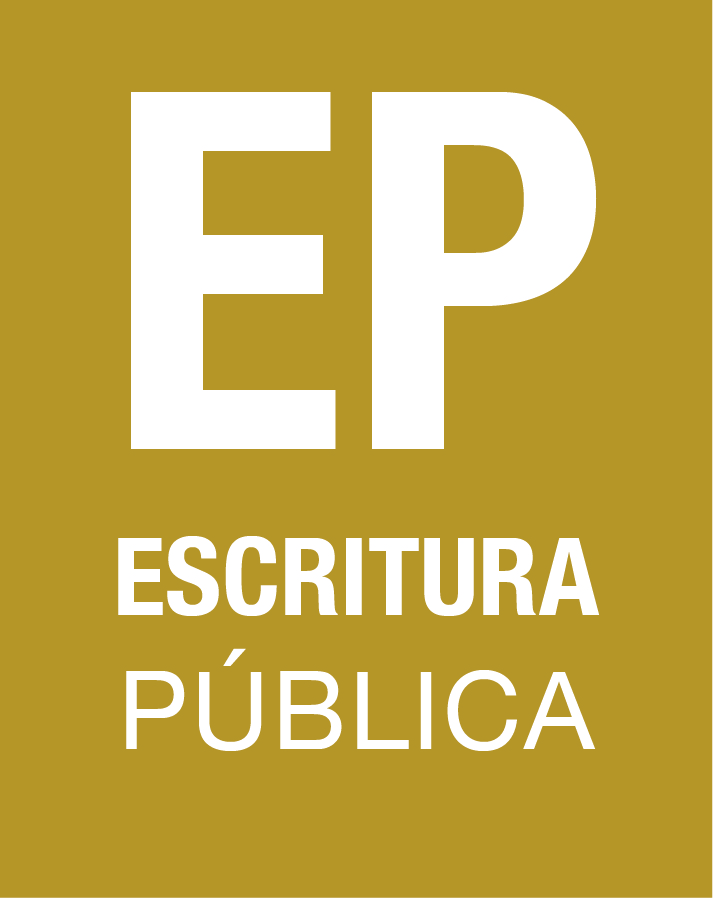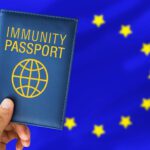ÁMBITO EUROPEO
MARÍA ANDRÉS
directora de la Oficina del Parlamento Europeo en España
Hacia una resiliencia creativa
MIENTRAS EUROPA continúa gestionando en múltiples frentes las consecuencias económicas, sociales y de salud de la pandemia de coronavirus, los gobiernos nacionales y las instituciones europeas parecen haber iniciado una carrera contrarreloj para desarrollar una nueva estrategia sólida para la UE post-covid, aspirando a una renovada «resiliencia» y «autonomía estratégica» de Europa que resultarán clave para nuestra supervivencia en un mundo globalizado y cada vez más complejo.
Con escasos días de diferencia, hemos asistido a la presentación de la agenda España 2050 por el gobierno nacional y al anuncio del segundo informe anual de Prospectiva estratégica para la UE, que el vicepresidente de la Comisión, Maroš Šefčovič, presentará en julio. También el Parlamento Europeo ha contribuido al debate con toda una batería de medidas en su estrategia Hacia una Europa más resiliente. Los tres informes confluyen en sus principales ideas fuerza.
Efectivamente, los shocks y múltiples retos afrontados en los últimos años (la crisis financiera en 2008, la de inmigración en 2015, la decisión del Reino Unido de salir de la UE o la elección de Trump en EE.UU., así como la dramática irrupción de la Covid-19 en nuestras vidas) han visibilizado la importancia de anticipar las diferentes tendencias globales más allá del siguiente ciclo electoral y nos enseñan a prevenir con políticas europeas más ágiles y centradas, por un lado, en responder a las distintas vulnerabilidades estructurales de la UE y, por otro, a proteger nuestras fortalezas, consolidando lo que hoy denominamos «el modo de vida europeo»: la democracia liberal, el estado del bienestar, la libre movilidad de ciudadanos o un derecho básico a la salud y la protección social.
La primera lección es que para lograrlo en una arquitectura de gobernanza multinivel y compleja como la UE tendremos que aprender a conjugar con mayor velocidad medidas coordinadas a diferentes niveles (local, nacional, europeo o internacional). Así, la solución a algunos de los actuales retos –la gestión de la crisis sanitaria, el reforzamiento del multilateralismo con terceros países– dependerán de nuestra capacidad de forjar compromisos constructivos con terceros países a nivel global. Otros retos –la reconstrucción económica y del mercado único en la UE o el pilar social europeo– requerirán políticas domésticas efectivas dentro de la UE, tomadas en el seno de sus instituciones comunitarias. Una tercera categoría de retos -la reducción de la dependencia energética, la seguridad alimentaria o la defensa de las fronteras exteriores de Europa- comparten ambas necesidades: una legislación sólida europea y una cooperación estrecha con terceros países fuera de la UE.
La globalización de las dos últimas décadas es un proceso que no admite retorno, y si hay algo que hemos aprendido tras afrontar múltiples crisis «globales» es el efecto multiplicador que se destila de la acción común. Ni la mayor potencia mundial del siglo XX ha llegado demasiado lejos en el XXI con su America first. Por eso no podemos seguir trabajando en silos ni compartimentos estancos. Y por eso también asuntos como el de la política sanitaria o la gestión de fronteras interiores son retos de competencia legislativa nacional pero donde la UE puede (y debe) fortalecer la capacidad ejecutiva de sus Estados miembros, apoyándolos con una estrecha coordinación de sus legislaciones nacionales. A esta necesidad, precisamente, responden acciones clave estas semanas como la creación del nuevo Certificado Covid-19.
Cuando dentro de unos años echemos la vista atrás para analizar la respuesta que la UE ha dado para paliar los efectos sociales, económicos y sanitarios de la Covid-19, estoy convencida de que el nuevo Certificado Digital Covid destacará como uno de sus mayores aciertos, junto con el paquete de recuperación económica (conocido como nextgeneration.eu), la flexibilidad otorgada a los Estados para que estos pudieran endeudarse más allá del 3% durante la gestión en caliente de la pandemia, el apoyo en liquidez para pagar los ERTEs o el programa EU4Health para reforzar la distribución de medicamentos y el abastecimiento de hospitales, entre otros.
Si hay algo que esta pandemia nos ha enseñado en Europa es a apreciar plenamente dos valores intrínsecos del proyecto europeo que durante demasiado tiempo habíamos dado por sentado: el acceso universal a la salud y el derecho a la movilidad intraeuropea. El certificado digital constituye una apuesta decidida para rescatar ambos principios.
En virtud del acuerdo alcanzado en tiempo récord entre el Parlamento Europeo y el Consejo, válido desde el 1 de julio, el certificado confirmará que una persona ha sido vacunada contra la Covid-19, que cuenta con un test negativo reciente o que ha superado la enfermedad en los últimos seis meses.
Hemos aprendido a golpe de crisis que a menudo no es necesaria una transferencia formal de competencias de gobiernos nacionales a la UE, pero sí resulta imprescindible el desarrollo de una estrecha cooperación entre países europeos y la voluntad de aceptar la realidad de nuestra interdependencia cuando afrontamos retos globales: el cambio climático o la resiliencia de nuestros sistemas bancarios son otros ejemplos urgentes del siglo XXI. Para solucionar cada uno de ellos necesitaremos una UE más ágil y una capacidad de resiliencia creativa, que aporte soluciones coordinadas desde diferentes niveles y destierre los compartimentos estanco ya obsoletos en los que hemos aprendido a operar a lo largo del siglo XX.
English version
Towards creative resilience
AS EUROPE continues to grapple with the economic, social and health fallouts of the coronavirus pandemic across multiple fronts, national governments and European institutions appear to be in a race against the clock to develop a strong new strategy for Post-Covid EU, aiming for renewed ‘resilience’ and a ‘strategic autonomy’ for Europe that will be key to our survival in an increasingly complex and globalised world.
Just a few days separated the presentation of the Spain 2050 agenda by the national government and the announcement of the second annual Strategic Foresight Report that Commission Vice-President Maroš Šefčovič will present in July. The European Parliament has also engaged in the debate with a raft of measures in its Towards a More Resilient Europe strategy. The three reports have the same main thrusts.
The shocks and multiple challenges faced in recent years (the 2008 financial crisis, the migrant crisis of 2015, the UK’s decision to leave the EU and Trump’s election in the US, as well as the dramatic impact of Covid-19 on our lives) have highlighted the importance of anticipating different global trends beyond the next election cycle. Indeed they have taught us how to step up to them with European policies that are more agile and focused on responding to the EU’s various structural vulnerabilities and by protecting our strengths, consolidating what we now call ‘the European way of life’, i.e., liberal democracy, the welfare state, free mobility of citizens and a basic right to healthcare and social protection.
The first lesson is that to achieve this in a complex, multi-level governance architecture like the EU, we need to learn how to more speedily tap coordinated measures across different levels (local, national, European and international). Solving some of the current challenges, such as managing the health crisis and shoring up multilateralism with third countries, will depend on our ability to build constructive commitments with third countries globally. Other challenges, such as rebuilding the economy and the single market in the EU or the European social pillar, will require its institutions to take effective domestic policies. A third category of challenges, i.e., reducing energy dependence, food security and the defence of Europe’s external borders, share both needs: strong European legislation and close cooperation with third countries outside of the Union.
There is no walking back from the globalisation of the last two decades and if there is one thing we have learned from facing multiple “global” crises it is the domino effect deriving from common action. Not even the twentieth century’s leading global powerhouse has had much success in the twenty-first with ‘America First’. This is why we cannot continue working in silos or closed chambers. And it is why issues such as the health policy and internal border management are challenges within the national legislative remit but where the EU can (and should) boost the executive capacity of its Member States, supporting them with close coordination of their national laws. Key actions in recent weeks, such as the creation of the new Covid-19 Certificate, respond to this need.
When within a few years we look back and try to unpack the EU’s response to alleviating the social, economic and health impacts of Covid-19, I am convinced that the new Digital Covid Certificate will stand out as one of its greatest successes, along with the economic recovery package (known as nextgeneration.eu), the flexibility granted to States to borrow more tan 3% during the period of active pandemic management, the cash support to pay for furloughs and the EU4Health programme to shore up the distribution of medicines and to supply hospitals, among others.
If there is one thing this pandemic has taught us in Europe, it is to fully appreciate two intrinsic values of the European Project that we had taken for granted for too long: universal access to health and the right to intra-European mobility. The digital certificate is a firm intent to recover both principles.
Under the record-time agreement by the European Parliament and Council, valid from 1 July, the certificate will confirm that a person has been vaccinated against Covid-19, has had a recent negative test or has recovered from the disease in the past six months.
With the crisis, we learned the hard way that while a formal transfer of powers from national governments to the EU is often unnecessary, it is essential to develop close cooperation between European countries and a willingness to accept the reality of our interdependence when facing global challenges. Climate change and the resilience of our banking systems are other pressing examples from the twenty-first century. Solving them requires a more agile EU and creative resilience to provide coordinated solutions from different levels and to step out of the closed chambers we learned to operate in throughout the twentieth century that have now been rendered obsolete.




